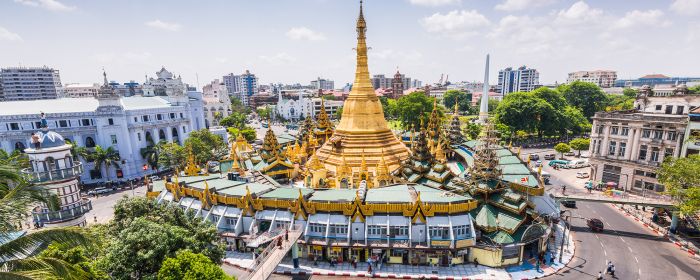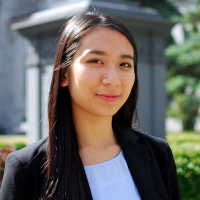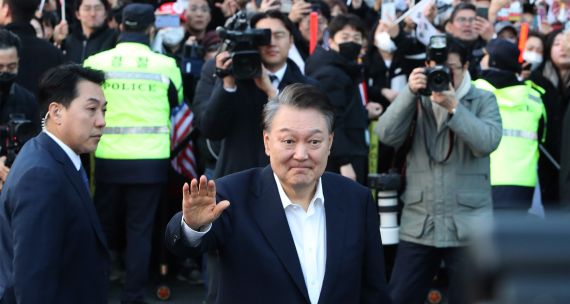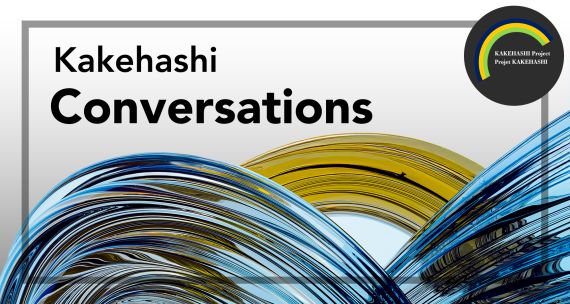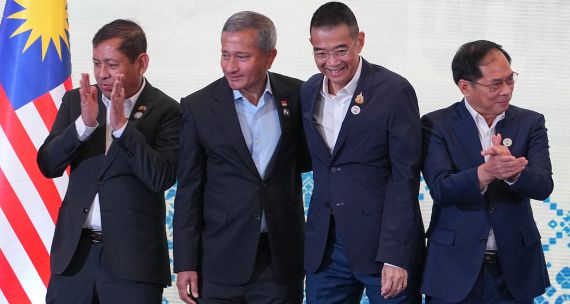One month from today, the people of Myanmar will cast their ballots in the country’s second free election in 30 years. Unlike the previous election five years ago, the ruling National League for Democracy (NLD) has a substantial governance record by which it will be judged by voters.
Undoubtedly, circumstances have changed since the last election. While the government’s record includes some notable accomplishments, including reforms to enhance civilian control of government ministries and improve the business environment, this election is also taking place amid the coronavirus pandemic, which is straining the country’s already weak public health infrastructure and devastating the newly liberalized economy.
An enduring issue looms even larger over Myanmar’s politics and the upcoming election: the unresolved ethnic tensions that have dragged this multiethnic country through decades of violence, unrealized economic potential, corruption, and possibly even genocide. Against the backdrop of persistent ethnic conflict, will the excitement for next month’s election be stymied? What does the persistence of these ethnic conflicts say about the situation the NLD inherited five years ago, and how much progress has been made since then?
This dispatch is the first in a four-part series on Myanmar’s upcoming election. It explores the thorny issue of ethnic conflict, which lies at the heart of Myanmar’s ongoing challenges.
Dashed hope for democracy
In 2015, the world saw what it believed was an unfolding political transformation: Millions of people in Myanmar stood in crowded lines waiting to vote after decades of repressive military rule. The 2015 election was a landslide victory for the NLD headed by Aung Sang Suu Kyi, the 1991 Nobel Prize-winner and former honorary Canadian citizen who was under house arrest for 15 years until 2010 for her involvement in Myanmar’s pro-democracy movement.
Five years later, Myanmar under the NLD’s leadership still finds itself grappling with one of the biggest challenges shared by the military-affiliated regime it replaced: Ongoing armed conflicts between the state and different ethnic groups, and a stalled peace process. Nowhere is this more evident than in the case of the Rohingya, an ethnic Muslim minority the Myanmar government considers illegal immigrants in a majority ethnically Bamar nation. Hundreds of thousands of Rohingya were forced to flee the country after Myanmar’s security forces launched a brutal campaign in 2017 to clamp down on militant groups.
The violence continues to this day, with Myanmar now under investigation by the International Criminal Court (ICC) for alleged crimes against humanity over its crackdown against ethnic minorities. It is also facing accusations of genocide against the Rohingya at the International Court of Justice (ICJ) in a case filed by the Gambia, with Canada and the Netherlands vowing to support the ongoing lawsuit and hold Myanmar accountable for its alleged crimes. While in its preliminary ruling, the ICJ ordered Myanmar to take all measures in its capacity to prevent genocidal acts against the Rohingya, it will likely take years before the final verdict is delivered.
But the Rohingya are not the only ones facing persecution in Myanmar. Clashes between the Tatmadaw (Myanmar’s security forces) and ethnic armed groups have intensified in Kachin, Shan, and Karen States since 2018, only a few years after Aung Sang Suu Kyi and the NLD secured victory with the endorsement of ethnic groups throughout the country. Recent disputes over large-scale development projects and natural resources have prompted the military to attack, forcibly displace, and cut international aid to ethnic minority groups.
Clearly, democratization was not the quick fix for Myanmar that many had hoped. Why do these conflicts persist? How have these ethnic conflicts evolved throughout Myanmar’s modern history, especially as it transitions to a democratic system? What impact, if any, might we expect the upcoming election to have on these conflicts?
History of Myanmar’s ethnic divisions
Notions of race and ethnicity have always been central to politics, citizenship, and conflict in modern-day Myanmar. They were the basis of colonial governance and administration, which lasted from 1824 to 1948. The classification of ethnic groups and the differential treatment accorded to them was part of a British attempt to systematically record and manage the diverse peoples under its rule.
The end of the colonial period left in its wake a deeply divided society, as these ethnic categories came to be regarded as immutable and biologically determined.
In the post-independence era, the concept of “indigenous races,” or taingyintha, became politically salient for the new military government. One of its key objectives was to determine who, in fact, belonged in the post-independence state, and who were considered interlopers. Taingyintha determined citizenship status, franchise, and other rights, but there was never a transparent or meaningful process by which the state decided which group was indigenous or not. The current list of 135 officially recognized ethnic groups is supposedly drawn from colonial-era taxonomy but contains many errors and exclusions, notably the Rohingya.
Liberalizing reforms initiated by the military government of Thein Sein in 2011 raised high hopes for peace and democracy in Myanmar, but ultimately only legitimized inequalities and exacerbated ethnic tensions. With the advent of democracy, ethnic minority organizations face the challenge of building political and organizational capacity to make sure that they have a say in negotiations on Myanmar's future. And yet, the political space has been severely limited under both the military government and the current government due to historic hostility and repression, and ethnic minorities themselves have been divided over their goals and strategies. In the absence of a unifying vision of a multicultural nation, greater social and political freedoms allowed competing groups to take advantage of ethnic identity as the primary basis to organize politically and gain influence.
Ethnic minorities have also become increasingly frustrated with a winner-takes-all electoral system – one in which the party with the most votes wins, irrespective of the proportion of votes they received – that leaves them with little representation and political leverage. Many ethnic groups who voted for the NLD in 2015 are already losing faith in electoral politics' ability to address ethnic grievances and refuse to endorse a political system that is nominally democratic but still intrinsically backed by the military. While some have formed their own ethnic parties, others see insurgency as the only option to achieve their goals.
For decades the Tatmadaw have faced insurgencies in minority-inhabited areas across the country. These security forces maintained stability by co-opting proxy armies through “ceasefire capitalism,” a quid pro quo exchange of ceasefires for concessions to help regional economic development. Many armed groups involved in the illicit trade of drugs, jade, and other goods were offered impunity and opportunities to channel their illegal profits into formal enterprises. More armed militias were created as a result to protect local communities from rival ethnic armed groups.
The peace process, which enjoyed significant initial success when it was launched in August 2011 to end nearly seven decades of internal armed conflict, began to hit major roadblocks by 2014, even before the NLD came into power the following year. The government was unable to convince some of the most powerful ethnic groups to sign the Nationwide Ceasefire Agreement (NCA). Aung Sang Suu Kyi has often stressed the importance of national reconciliation, but the national reconciliation she prioritizes has increasingly meant reconciliation between the NLD and the army through constitutional changes. Moreover, while the current government has turned its attention away from resolving the country’s many ethnic conflicts, its focus has shifted towards shoring up support among its ethnic Bamar base, which comprises the majority of the population and is thus vitally important to returning the NLD to power in next month’s election.
It is unsurprising, then, that under such conditions of rising ethnonationalism, weak central-periphery relations, and a lack of commitment to genuine peace, ethnic armed conflict under the NLD government has worsened. In recent years, the country has seen some of the bloodiest clashes between the military and militias in Rakhine State in the west and Shan State in the east with no signs of abatement.
The latest round of peace talks held in late August did not include the Federal Political Negotiation and Consultative Committee (FPNCC), a coalition of some of Myanmar’s most influential ethnic armed organizations, including the Arakan Army, the largest insurgent group in Rakhine State currently engaged in a war with the Tatmadaw. In the absence of key players and meaningful breakthroughs, ethnic reconciliation is still a distant dream.
The road ahead: Context of the 2020 elections
Myanmar’s election preparation began under the shadow of a global pandemic, which, despite the country’s relatively low number of cases, will still affect campaigning, the actual conduct of elections, and perhaps even the outcome itself. Restrictions on gathering disadvantages smaller ethnic parties, which, combined with poor internet connectivity, will make it difficult to reach rural voters. The economic shock from the pandemic has battered the country’s once robust economy, with key sectors such as oil and manufacturing struggling. And yet, only a meagre stimulus package has been brought forth by the current government.
Many predict that Aung Sang Suu Kyi’s overwhelming popularity among the majority ethnic Bamar population will almost certainly allow her party to secure another win in November. Although the election will not resolve historical grievances, its success may provide an opportunity to restore trust in national institutions, despite reinforcing existing doubts about democratic progress. The pressure is mounting on Aung Sang Suu Kyi and the NLD to address ethnic grievances at home and answer to accusations of crimes against humanity at the highest level of international law.
In the ongoing battle to bring justice to the country, both domestic and international players must understand Myanmar’s current problems as the legacy of a complex and traumatic past, while putting the lives of the most vulnerable people at the forefront of their agendas.
The author is grateful for the comments and suggestions provided by Election Watch Myanmar team members Tae Young Bae and Matthew Putman.
Other Dispatches in this Election Watch Series:
Election Watch Myanmar (Oct. 30): Balancing Economic Recovery and Social Reform in the Lead-up to the General Election
Election Watch Myanmar (Nov. 6): Three Questions Surrounding Myanmar's General Election
Election Watch Myanmar (Nov. 17): A Renewed Mandate for the Returning Party
